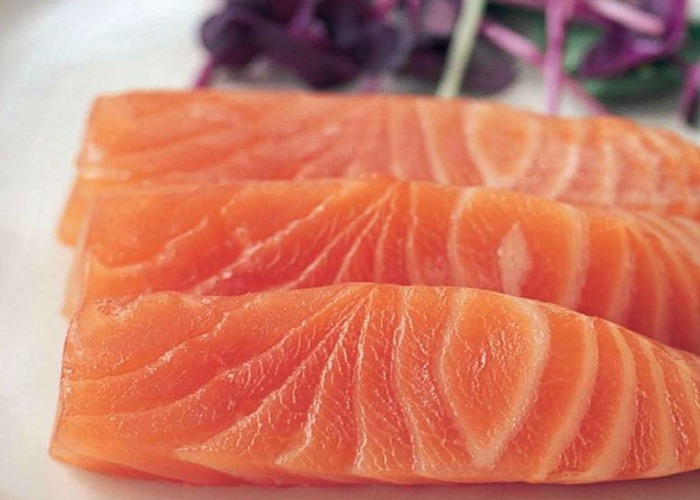London Cure smoked salmon gains PGI protected product status

Famous method of curing smoked salmon recognised by Protected Geographical Indication award.
H. Forman & Son’s London Cure smoked salmon has become the first product from London to join the list of European Protected Foods.
The highly sought-after European Protected Geographical Indication (PGI) status celebrates and protects traditional regional foods, and is also enforced by law.
PGI status ensures customers aren’t subjected to cheap imitations that may include additives, sugar preservatives or cheap imitations that are lower in quality. Products can only receive this status if it is made in its entirety within a specific region.
Some of the more well-known products include Champagne in France, Gorgonzola in Italy, and Melton Mowbray pork pies.
How the London Cure smoked salmon qualifies
For the salmon to carry the PGI mark it must be produced in the London boroughs of Tower Hamlets, Hackney or Newham.
To make the London Cure, oak smoke and salt must be used.
London Cure will only be considered if the salmon is smoked and processed entirely by hand. The traditional method of smoking the salmon acts as a seal to lock in the taste, rather than to flavour it, and so gives a milder, more delicate flavour than other mass-produced varieties.
A bit of history
At the turn of the last century, smoked salmon was first produced in Jewish communities in the East End of London.
Lance Forman, owner of H. Forman, said: “Our business is not just to smoke salmon, but to act as keepers of an extraordinary tradition, with the mission and desire to educate the public on how this traditional food should be made”.
Michael Gove, the Secretary of State for Environment, Food and Rural Affairs, said: “London Cure smoked salmon has been cherished by food lovers in the capital for generations and the traditional skills used to produce it today are testament to the rich culinary heritage we have in this country.
“It will now rightly sit alongside Cornish sardines, Conwy mussels and Whitstable oysters as examples of the world-class produce that uphold our reputation as a great food nation.”
Other PGI foods
Some of the more recent UK PGI food and drinks include:
- as of 2008 and 2012, fresh Scottish salmon and Scottish wild salmon have their own PGI statuses;
- Stornoway black pudding gained status in 2013. The black pudding must be produced using a traditional recipe with a prescribed ratio of ingredients and within the vicinity of the Isle of Lewis and “the surrounding ‘Stornoway Trust’ area”;
- in 2012, Armagh bramley apples reached PGI status. The apples have to be grown within the Archdiocese of Armagh, Northern Ireland (Counties Tyrone and Armagh and parts of County Londonderry). The apples also need to be harvested between early September and late October;
- if you enjoy scallops you could try the 2012 PGI-recognised Isle of Man queenies. These queen scallops must have been caught within the territorial waters of the Isle of Man;
- Martini drinkers may be interested in trying Plymouth gin. The spirit gained PGI status in 2008 and is of course limited to gin produced in Plymouth. It also needs to have a minimum ABV of 37.5%, and have a predominantly juniper flavour.
Do you have a favourite regional delicacy? Let us know in the Comments below.
You might also like:
Comments
Be the first to comment
Do you want to comment on this article? You need to be signed in for this feature